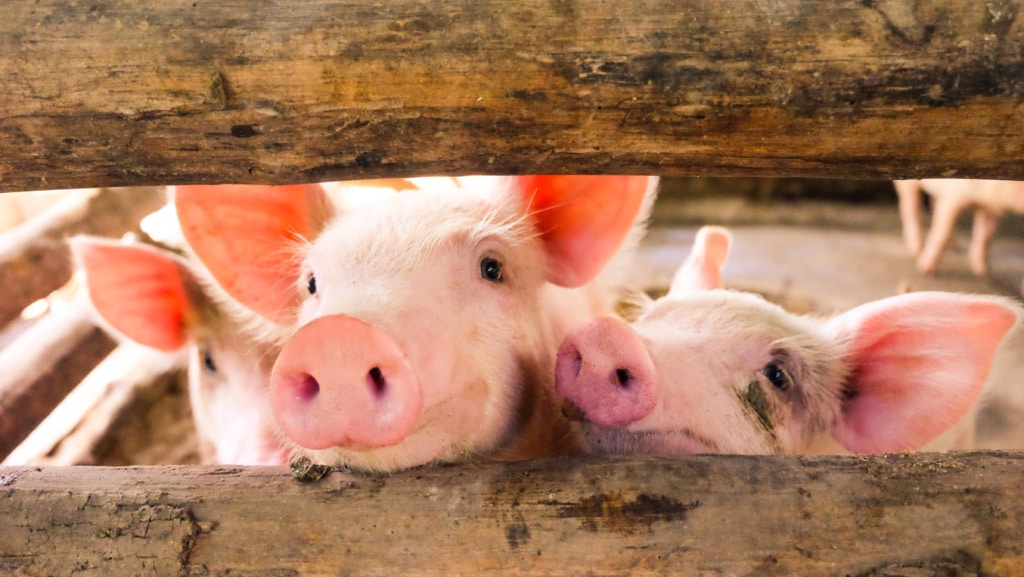
Importance of Breakthrough
Male piglets are castrated to improve the quality of meat for consumers, but this practice is also a concerning animal welfare issue, as it is usually performed without pain management. Recombinetics/Acceligen and Hendrix Genetics successfully used a genome editing method to create swine that remain in a pre-pubertal state, thus eliminating the need for surgical castration. The first litter of castration-free prototype piglets using commercially relevant genetics confirms the methodology is working.
Details about this breakthrough
Intact male pigs experience “boar taint,” which causes an unpleasant odor and unsavory taste in the resulting meat. Male pigs are castrated young to prevent boar taint; pain relievers are rarely administered. Castrated piglets show an acute physiological stress response to castration, including increased stress hormone levels, elevated heart rate and demonstrated indicators of pain that can last for four days following the procedure. The European Union has banned the practice of swine castration, but its implementation has been delayed amid challenges to the costs of implementation.
This project has successfully deleted the gene that triggers the release of hormones necessary for sexual maturation in the piglets’ DNA, preventing them from reaching puberty and thus negating the need to castrate the pigs. The next step in this research is determining the commercial viability of castration-free pigs. Since these prototype pigs were created to be permanently prepubescent, the alliance is determining how to breed these pigs without comprising traits like feed efficiency and meat quality. The alliance comprises some of the largest pig genetic companies in the world, possessing the capacity and capabilities needed to supply these permanently prepubescent pigs to pork producers worldwide.